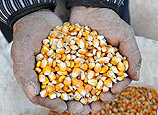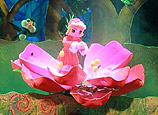Chinese acrobatics has been around for thousands of years. But it’s seen a particular revival since the founding of New China. Today, the art is being used as a bridge to connect Chinese culture with global audiences.
Physics be damned or so it would seem, it’s easy to see why this Diablo act so-captivated audiences and their Peking-opera inspired outfits certainly didn’t hurt.
This group of artists is from the China National Acrobatic Troupe. Night after night, they wow spectators with carefully-honed and seemingly impossible routines as part of their show in the Capital.
Yet the grand stage is just small part of the performing artists’ lives. In fact, most of the time, there are no bright lights and no cheering crowds. Though they may make it look easy, hours of grinding work lies behind each stunt and the job is almost more lifestyle than career. 24-year old Liang Zi started learning acrobatics when she was 6.
Liang Zi, Acrobat, China National Acrobatic Troupe, said, " I didn’t fall in love with acrobatics at first. The practice requires serious discipline, and there’s a lot of difficult training. But I feel happy when I put on a good performance."
Such hard work is proving its worth these days, as the craft gains greater and greater global stature. A number of Chinese performers are now part of the world-renowned Cirque du Soleil’s permanent show in Hollywood. And in 2012, the group was selected to perform at the 84th Academy Awards!
Zhang Hong, General Manager, China National Acrobatic Troupe, said, "Chinese acrobatics have become a hallmark of Chinese culture. Chinese acrobats are tremendously skilled as artists. We have won lots of international awards including the Golden Clown Award in Monte Carlo, the circus equivalent of The Oscars! And there is no spoken word, it’s all visual, so it’s an art that can be enjoyed worldwide!"
Since its founding in 1950, the China National Acrobatic Troupe has toured more than 100 countries and regions worldwide, promoting Chinese culture.
Recommendations:
News we recommend


【1】 【2】 【3】




























 Heavy snowfall hits N China's Hohhot
Heavy snowfall hits N China's Hohhot


![]()
